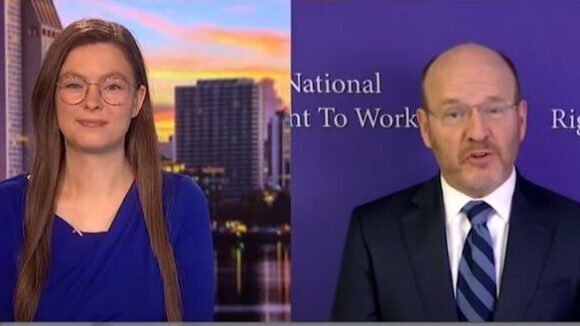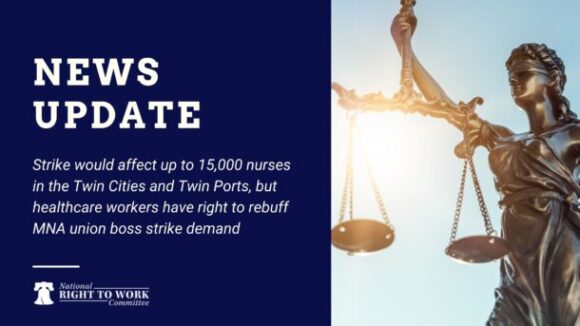Foundation Issues Special Legal Notice to Rutgers Professors Impacted by Union Officials’ Strike Order
Rutgers employees can legally attend work regardless of union boss demands to strike
The Washington Post argues that Washington bailouts for state union workers reinforces dependency on the feds and is a political handout to their Big Labor constituency. It’s not often we agree with the Post but in this case they are right:
TO GOVERN is to choose, and nothing lays bare a government’s true priorities like the choices it makes about spending taxpayers’ money. In that regard, the Senate’s decision to spend $10 billion on education jobs this week is revealing — and deeply discouraging.
The crusade for an education jobs bill, led by the Obama administration and Democratic leaders in Congress, has always struck us as more of an election-year favor for teachers unions than an optimal use of public resources. Billed as an effort to stimulate the economy, it’s not clearly more effective than alternative uses of the cash. Yes, school budgets are tight across the country, but the teacher layoff “crisis” is exaggerated. In fact, as happens each year, many teachers who got pink slips in the spring have been notified that they’ll be hired after all. Many layoffs could have been — and indeed have been — avoided by modest union concessions.
As of last school year, the money for 5.5 percent of the 6 million K-12 jobs nationwide came from Washington through the 2009 stimulus; the new money reinforces this dangerous dependency.
Nor does the legislation target areas with the most projected teacher layoffs; Maryland, for example, is slated to get $179 million, yet officials have no estimate of layoffs for the school year that begins in a few weeks. The Baltimore Sun noted in May that “most of [the state’s] school systems are not planning to lay off teachers,” and that several were hiring new ones. No matter: The bill allows school systems to use the money to expand their teaching staffs or even to raise teacher salaries.
Compounding that unfairness, however, is the Senate’s decision to help pay for the teacher bailout by cutting $11.9 billion from nutrition assistance for the poor starting in 2014. You read that right: The bill borrows money to spend on middle-class school system employees today and promises to pay it back by taking food out of the mouths of America’s neediest in a few years…
…In the face of an outcry from anti-poverty organizations, a spokesman for Senate Majority Leader Harry Reid (D-Nev.) has said Mr. Reid may revisit this trade-off with the White House before the House votes on the bill next week. The question remains: What, except for election-year politics, motivated him to consider it in the first place?

Rutgers employees can legally attend work regardless of union boss demands to strike

Big Labor's Evasion of Liability for Property Damage and the Foundation's SCOTUS Amicus brief in Glacier Northwest.

Strike would affect up to 15,000 nurses in the Twin Cities and Twin Ports, but healthcare workers have right to rebuff MNA union boss strike demand